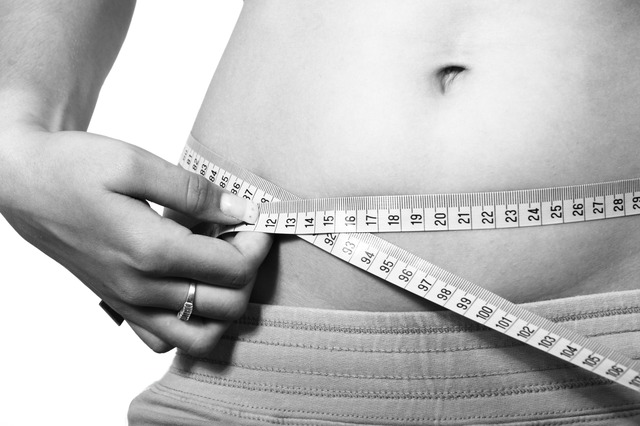When it comes to diet and exercise almost everyone you meet suddenly transforms into a nutritionist or personal trainer. Anyone who has adopted a different eating or training method understands some of the negative criticism that comes when change is put into effect. Whether it is how you choose to eat, or not eat, the fitness plans or regimens you implement, or even just a change in your outlook, sometimes the people that are closest to us—our family, friends, colleagues, or significant others—might not always react in the way we want them to.

There are many difficult barriers to overcome when starting, or maintaining, your changes in your lifestyle—but how do we overcome negativity coming from the people that are closest to us, especially when you feel like the change is for the good?
Recognizing the problem
We’ve all been there: Friday night rolls around and everyone is heading to the nearest happy hour, or going out to eat dinner with friends, and while everyone else is ordering a burger, or grabbing a pint and you are sticking to a salad or water. And then it comes, “Will eating one French fry kill you?” or “You always ate bread—don’t tell be you’re turning into one of ‘those’ people”, or “When did you become so uptight that you can’t come out and have a drink?”
Envy: Unfortunately, even our loved ones can be envious of the changes and are not ready to change themselves, or put in the hard work. The easiest thing is for them to lash out at you instead of applauding your hard work. It’s crucial you don’t respond with anger and find a way to turn the destructive criticism into constructive criticism. When the comments start rolling in, “So, are you going to keep this up until your disappear.” Kevin Bourgeois, a licensed clinical social worker, says ‘“mirror back” what they hear so that the person can hear how insensitive the comment might have been.” You can always retort with, “If this is you supporting me, you can always try something like “you look great, keep up the good work.” (1)
 Fear: If you have been friends with someone for years and suddenly you no longer want to do the activities you’ve always done, then it is understandable why they are reacting negatively. Weight loss, diet, and exercise will all affect a friendship and remember that your friends, family, and co-workers are accustomed to maybe a less healthy and active social life will change the bond that connected you to them.
Fear: If you have been friends with someone for years and suddenly you no longer want to do the activities you’ve always done, then it is understandable why they are reacting negatively. Weight loss, diet, and exercise will all affect a friendship and remember that your friends, family, and co-workers are accustomed to maybe a less healthy and active social life will change the bond that connected you to them.
When we think of how our time is spent socially, it usually involves foods and drinks. Whether it is the after work happy hour, going out dancing with friends, going to the movies, or even just having a romantic date our diet is almost always at risk. Beatriz Maldonado, a licensed Clinical Social Worker at Ochsner Health System, says, “If a person has only known you as very overweight, then you’ll seem to them to be “disappearing” as you lose weight. Don’t defend your choices. Instead, focus on strengthening your inner resolve.” (2)

Reaching Common Ground: Be Honest about your Diet
Sure, sometimes you feel like the world is against you: your boyfriend is upset that you spending time exercising instead of with him, your mom congratulates you for being able to fit in the dress she bought you while you were in college while handing you the biggest slice of pie, and your best friend doesn’t understand why you stopped eating cheese… If you’re like me, you don’t want to be rude, but there’s no harm in reminding your friends that no one is made the same and your choice to change does not need to have a negative impact on them.
The reason the gym can be hard is that it is work—it is painful. It takes a lot to do another squat when your quads are screaming. If you can bring that same diligence to your mind when your friends are all but jamming the breadbasket into your face, then you will succeed. Often, the people that know us best are just afraid they are going to lose the person that they have grown to like and love—reassure them that that is not the case: you are not changing as a person, and if you are, it is by bettering your health, body, and mind.
“You, only thinner, may intimidate them, says psychologist Judith Beck, PhD, president of the Beck Institute for Cognitive Behavior Therapy in Philadelphia, and author of The Beck Diet Solution. “They may be scared that you won’t need them in your life after you drop a dress size.” (3)
 Flip the Criticism
Flip the Criticism
Turn negative criticism around by sharing your advice, tips and strategies—one of the issues may be that they don’t understand your motivation and it is out of their sphere of knowledge. Invite your friends or family to be part of your new diet or exercise regimen: give them the opportunity to relate to you. If nothing else this will give them some insight. Let them feel your excitement instead of leaving them to pick apart your decisions.
Don’t be an avoider
Of all the struggles I face when eating healthy and keep a constituent workout routine and working out, I find it hardest to go to restaurants where I feel uncomfortable for asking what I want. No one wants to be ‘picky’ by modifying a dish. I’ve become picky, because I order a salad or ask the waiter to modify a dish—but I’ve learned I am usually paying the same, sometimes even more, to have less than the original plate, so my feelings have slowly diminished by asking for the dressing on the side, or no cheese.
With diet, it is important to remember that people are inviting you to social events and dinners because they want to include you, not exclude you. Don’t approach these get together with anxiety: still go to the happy hour, just order something non-alcoholic, or low-calorie. Your friends will notice even more if you start disappearing. If you start to miss out socially, then you will really feel alone and your friends will become worried.
 PhD, Professor of Psychology at the University of Toronto, explains, “When you deviate from your typical order — say, by adding a side of fries — your friends will automatically notice, says. “In our studies, women, without being asked to keep track, could recount after a meal how much up to three other people at the table had eaten,” she says. Food, especially amongst women, is often used as a status symbol, who gets the prize for being the healthiest eater is almost an unsaid competition. (4)
PhD, Professor of Psychology at the University of Toronto, explains, “When you deviate from your typical order — say, by adding a side of fries — your friends will automatically notice, says. “In our studies, women, without being asked to keep track, could recount after a meal how much up to three other people at the table had eaten,” she says. Food, especially amongst women, is often used as a status symbol, who gets the prize for being the healthiest eater is almost an unsaid competition. (4)
Change Conflicting Activities
No one likes feeling abandoned. Lisa Young, PhD, RD, a FITNESS advisory board member and the author of The Portion Teller Plan tells, “It’s the concept of misery loving company.” (5) If you peer thought they could count on you to meet them at happy hour for wings and a pint and now your diet is stopping your from being there, that will only make them feel worse. Who wants a plate of wings and a bad day alone? Wouldn’t it be great to say, “Instead of us going and complaining for four hours over a 1,000 calories, why don’t we go take all this anger out in a kickboxing class?
By having different social outlets—outdoor sports, club teams, gallery hopping, etc.—you will be able to share your time doing activities that don’t jeopardize your progress. Think outside the box, try a bike ride and packed picnic instead of dinner and a movie. Take turns picking the restaurant: maybe you can invite your friends to try food that is healthier or hailing from a different part of the world. If you do find yourself at a happy hour, try moving to a drink that last longer and is not as heavy on the sugars—dirty martinis, tequila on the rocks with a squeeze of lime, or a vodka soda with a splash of cranberry are all slow sippers.
The Holidays Blues: Overcoming Tradition
And then there are the holidays, the time of the year when it is stuff it in and everything is white and brown…But, then there is the fact that food can be a sensitive subject when it comes to parents. Tradition is a very tough thing to break through. How do you tell your mom you no longer want to eat the double cheddar and cream cheese mashed potatoes with bacon bits she has been making your whole life because you have decided to cut out gluten, lactose, or meat? That may be a bit much for her to take in. It’s hard to argue that food is not integral to family life—this might be your chance to introduce a meal to your family recipes book that fits your changed diet.
 Pushing into the Future
Pushing into the Future
- By showing that you are not going to give up on your dietary or exercise choices, the more they will become common place.
- Don’t avoid friends and family, simply be consistent and they too will change.
- No one can complain about your choosing to be a vegetarian on year five. Or comment about bypassing the dinner roll the twentieth time you’ve done it. You can also be the change by cooking your favorite dishes and bringing them to the table.
- Make friends with similar interests. You’ll be able to support each other and not feel stressed about being you.
- Remember the reasons you’ve chosen to change and stay motivated.








